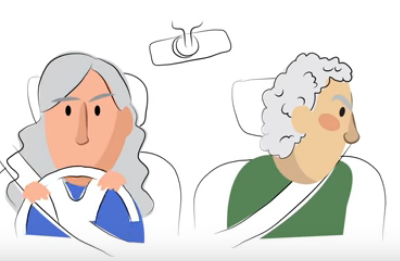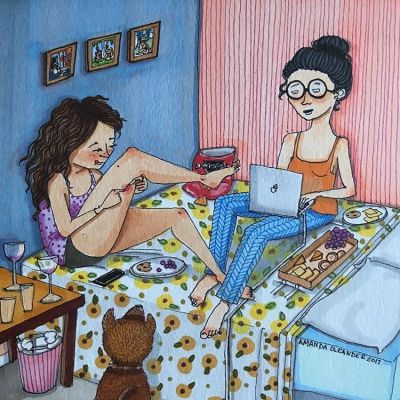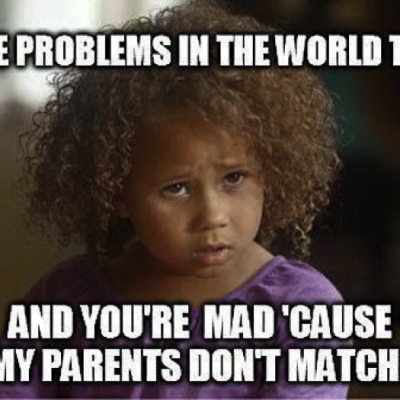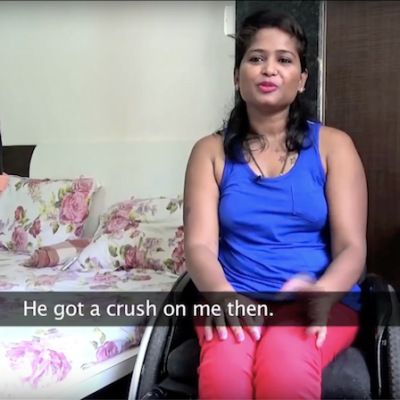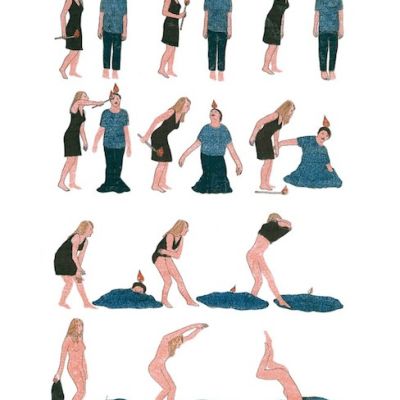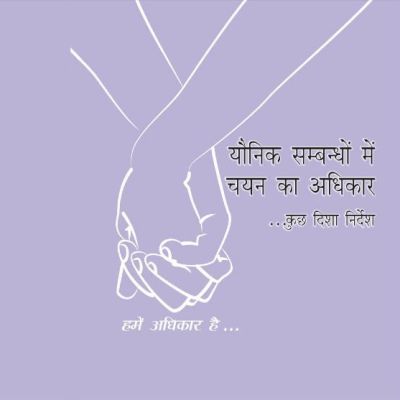relationships
The process of connecting with another person, opening up to them, and getting close enough to build an intimate relationship is fraught with complexities and grey-areas, which often has a marked impact on how we interact with that person and how we choose to conduct ourselves around them.
As we move toward destigmatising the topic of sex for all genders, we should include the language of intimacy as we collectively create a new cultural grammar around sex.
Artist Amanda Oleander’s paintings chronicles the everyday lives of couples and the various mundane things they do together that are simultaneously deeply intimate and poignant.
Desire is a man’s turf, right up there with moustaches and Adam’s apples / I’m the apple, I am the snake, I am Eve / I am the vibrator nestled between flimsy, cheap lace underwear / I am the shame, of saying I came
Both of us, have recently, decided to get married and will be in a marriage that I like to call a subversive marriage. Subversive marriages are based on an uncompromising equality and negotiations that serve for the betterment of both the partners.
The last few years have been a struggle in accepting myself with the possibility of always having acne and believing that I am still beautiful, even on the “outside”. This journey of believing that I can be worthy of love, attraction, expression and desire regardless of my looks continues to be liberating and empowering.
In a world of prescriptions of performance and perfection, there isn’t truly that much space built in to risk non-performance, not being perfect, or to risk not fitting the prescription.
In the short film, Baby Steps, a seemingly mundane Skype conversation between a mother and son turns into something more.
My hair smells like jasmine / From the wedding I went to last night / When I tethered my untameable hair with flowers,
In this video, Nisha and Chetan set the record straight about love, attraction, and disability. Nisha’s life changed after a spinal cord injury that led her to use a wheelchair. She thought romance was off the cards for her – until Chetan came into her life.
From my experience of being at the receiving end of this snap judgment of desirability, and seeing what a loss it is of getting to know people as persons instead of cardboard images, I realise how unjust this approach is towards seeking companions (which doesn’t necessarily mean romantic partners). This is not how I would want to be seen. I have been missing out on a lot of sexual, emotional and intellectual stimulation by reducing a person’s attractiveness to these notions.
One morning at the programme, I found he was ignoring me. I was also busy with my assigned work so I was not able to follow up with him until the break. During the break, he came and sat next to me, came closer and suddenly kissed me on the cheek.
इन प्लेनस्पिक के इस काम व यौनिकता के मुद्दे को सुनने के बाद पहला विचार मन में आया कि मैं कार्यस्थल पर होने वाली यौन हिंसा के बारे में लिखूंगी। फिर ऑफिस में रोमांटिक रिश्तों व लव स्टोरी के बारे में याद आया जो हम सब अपने काम के आसपास देखते या सुनते आये हैं और यह बॉलीवुड फिल्मों का भी पसंदीदा मुद्दा रहा है। मुझे ये बड़ा ही रोमांचक लगा, और जब मैंने लिखना शुरू किया तो एक सवाल मेरे दिमाग में आया – क्या कार्यस्थल पर इस मुद्दे से सम्बंधित कोई नीति है?
Is there a relationship at all that cannot be defined by love? And, if we were to begin talking of relationships other than romantic love, how would we speak of sexuality? Upon this deliberation, we realised that our Love and Sexuality issue seemed to revolve around romantic love and sex. The departure this issue on Relationships and Sexuality makes is to try and incorporate forms of relationships that might not be about romantic love but have their own kind of romance, and facets of sexuality that might not be about sex per se but will place its interest in alternate relationships to it.
आली द्वारा प्रकाशित आली द्वारा 6 राज्यों में (जिसमें उ.प्र., म.प्र., हरियाणा, महाराष्ट्र, पश्चिम बंगाल व केरल शामिल हैं) इस विषय…

